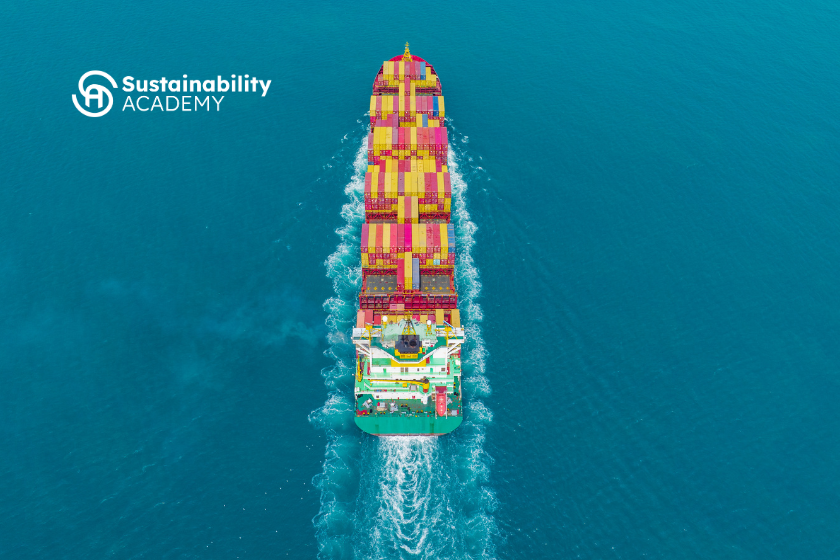Maritime industry IMO 2028 skills are becoming a defining priority as the sector faces a turning point. By 2028, the International Maritime Organization (IMO) will enforce new climate rules designed to accelerate global shipping’s decarbonization. These rules build on the IMO 2020 sulfur cap and the organization’s Revised GHG Strategy, which commits the sector to net-zero emissions “by or around 2050” with checkpoints in 2030 and 2040.
For companies, this means adapting fleets and operations. For professionals, it means acquiring new skills to remain relevant in an industry under regulatory and investor scrutiny. Leading shipping firms are already moving ahead: in 2025, one global carrier validated its climate targets with the Science Based Targets initiative, another began preparing to procure carbon removal credits, and a major tanker operator rebranded to highlight its decarbonization strategy. These steps show that readiness for IMO 2028 is not abstract—it’s already taking shape across the sector.
What Are the IMO 2028 Regulations?
While final details are still under negotiation, IMO 2028 is expected to strengthen the Carbon Intensity Indicator (CII) and the Energy Efficiency Existing Ship Index (EEXI). Together, these measures are designed to reduce the carbon intensity of international shipping by at least 40% by 2030 compared to 2008 levels.
At the same time, shipping faces increasing regional regulation. The EU’s Emissions Trading System (ETS) expanded in 2024 to include maritime CO₂ emissions, with methane and nitrous oxide to follow in 2026. The upcoming FuelEU Maritime regulation will further push operators toward low- and zero-carbon fuels.
This dual pressure from global and regional frameworks means compliance is no longer a technical challenge alone. It requires cross-disciplinary expertise that spans reporting, finance, and operational strategy.
Why Maritime Industry IMO 2028 Skills Matter More Than Ever
Technology is essential, but people drive compliance. A methanol-powered ship or ammonia-ready design still depends on managers and crews who can measure emissions, record data accurately, and disclose progress transparently.
Investors, regulators, and customers demand credible sustainability reporting. According to a 2025 survey by BNP Paribas, 87% of institutional investors say their ESG / sustainability objectives remain unchanged and 84% expect progress to accelerate toward 2030.
For maritime professionals, this translates into a clear skills agenda:
-
Carbon accounting and emissions monitoring — mastery of Scope 1, 2, and 3 reporting.
-
ESG frameworks — practical knowledge of GRI, SASB, and TCFD standards.
-
Digital compliance tools — the ability to use real-time monitoring and reporting platforms.
-
Stakeholder communication — translating technical compliance into investor- and regulator-ready reporting.
As Lloyd’s Register’s Global Maritime Trends Barometer 2025 notes, progress in both the energy and digital transitions still falls short of the industry’s net-zero ambitions, and addressing the people dimension — including workforce skills and adaptability — will be critical to accelerating change
The Maritime Skills for IMO 2028 Framework
To simplify the roadmap, we can group these competencies into four key pillars:
-
Reporting – Mastering ESG disclosure standards, emissions data systems, and audit-ready documentation.
-
Strategy – Aligning corporate decarbonization pathways with IMO and regional rules.
-
Compliance – Building fluency in CII, EEXI, ETS, and FuelEU Maritime obligations.
-
Innovation – Embracing new fuels, digital tools, and energy efficiency technologies.
Professionals who develop balanced skills across all four pillars will not only secure compliance but also position themselves as leaders in maritime sustainability.
Real-World Case Studies
Several shipping leaders are already aligning with these requirements. Each example shows how leading companies are already applying maritime industry IMO 2028 skills to prepare for decarbonisation.
-
Maersk has had its climate targets validated by the Science Based Targets initiative (SBTi) under the new maritime guidance, making it the first in the sector to align with a 1.5 °C pathway. The company has also committed to reducing absolute Scope 3 emissions by about 22% by 2030 (from 2022 levels) and continues to expand its fleet of methanol-capable vessels.
-
NYK Line will begin procuring carbon dioxide removal (CDR) credits in fiscal year 2025–26 to address residual emissions, targeting the retirement of about 100,000 metric tonnes of credits by 2030. At the same time, the company continues to invest in next-generation fuels such as ammonia, and recently showcased progress on building the ammonia value chain at Gastech 2025.
-
CMB.TECH (formerly Euronav) has rebranded to highlight its decarbonisation strategy and diversified fleet of roughly 160 vessels. In its 2024 Annual Report (published 2025), the company emphasized operational efficiency and sustainability through its FAST digital platform, which supports real-time performance monitoring, route optimization, and emissions-sensitive decision-making.
These examples show that IMO 2028 readiness is not theoretical—it is already underway across the industry, with leading companies blending new fuels, verified carbon strategies, and transparent ESG reporting into their operations.
Why ESG Reporting Training Matters for Maritime Professionals
For shipping professionals, the challenge is not only adapting fleets but also ensuring that compliance is reflected in reporting. ESG training helps align disclosures with global standards and investor expectations.
The Online Certificate on Sustainability (ESG) Reporting offered by the Sustainability Academy provides:
-
Comprehensive training on GRI, SASB, and TCFD frameworks.
-
Guidance on carbon reporting aligned with IMO and EU regulations.
-
Practical tools for stakeholder communication and investor engagement.
-
A CPD-accredited credential that strengthens career prospects worldwide.
For maritime professionals, this Online Certificate equips professionals with practical maritime industry IMO 2028 skills that align with reporting frameworks.
The Time to Act Is Now
Fleet renewal, regulatory adaptation, and workforce training take time. A few years may feel distant, but in shipping cycles it is a short horizon. Companies that invest early will not only meet IMO 2028 requirements but also gain a competitive advantage in an era of decarbonization leadership.
For professionals, preparing today means focusing on maritime industry IMO 2028 skills that connect technology, compliance, and ESG reporting.. The maritime industry’s future belongs to those who can navigate complexity and turn regulation into opportunity.

